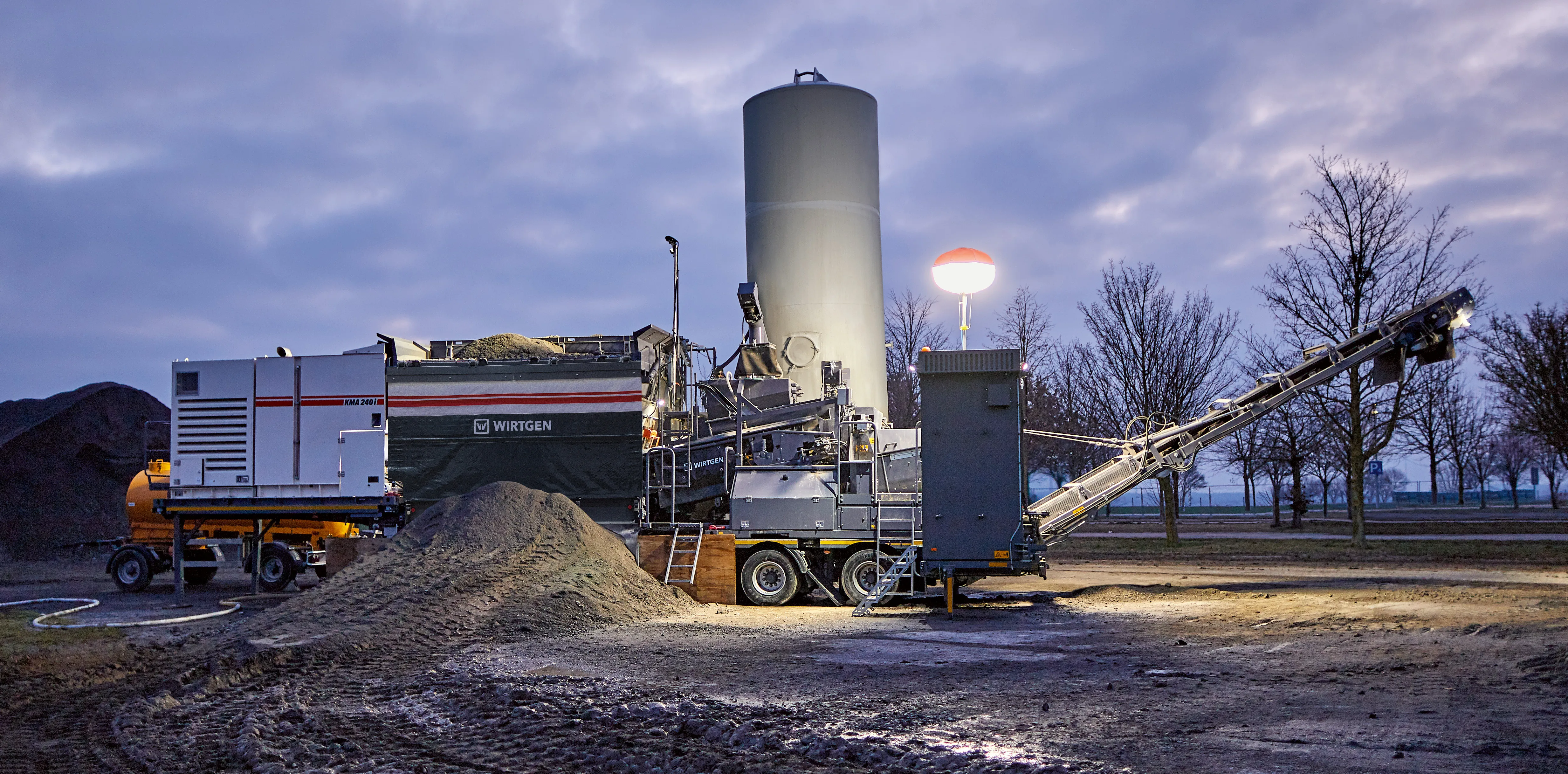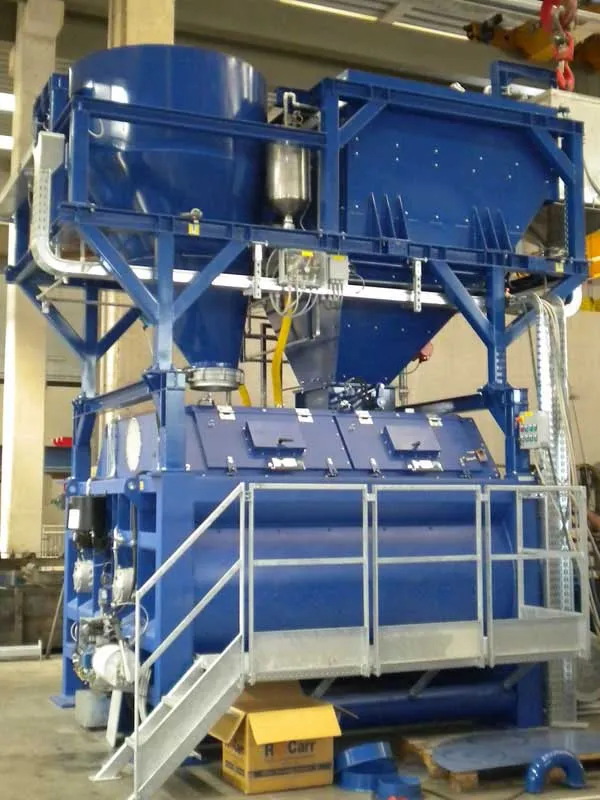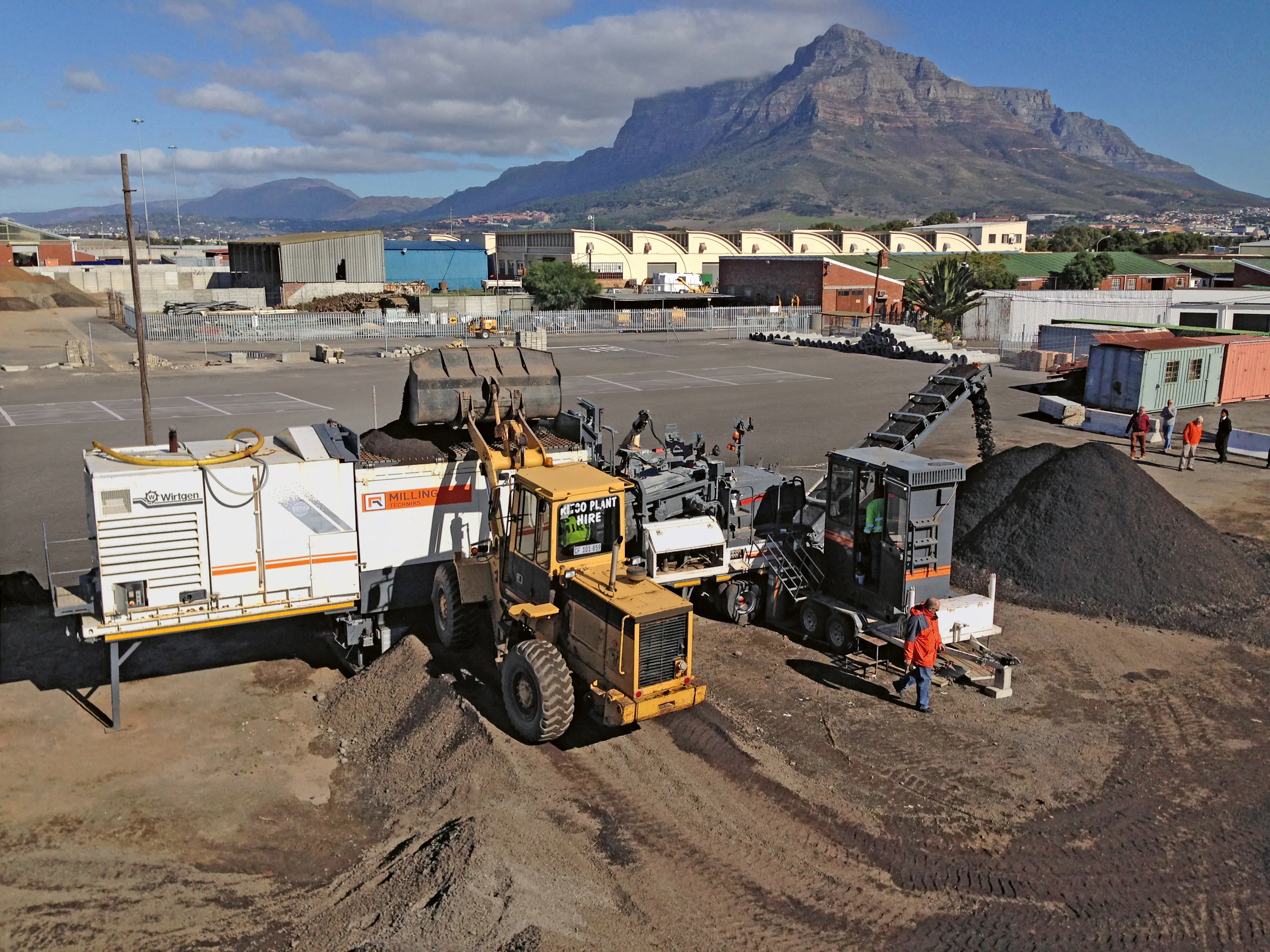
Cold recycling technologies from Wirtgen are in use around the globe for climate-friendly and cost-effective recycling of construction materials.
The new KMA 240(i) mobile cold recycling mixing plant from Wirtgen enables continuous and resource-efficient production of high-quality mixes. The innovative double trough technology makes it possible to double the speed of the production of mix from various different construction materials. The system enables precise, reliable and automatic addition of large amounts of hydraulic binding agents. As a result of this, the mix production process achieves the highest levels of efficiency and quality.
In addition to cold mixes for bituminous bound base layers, the plant can also produce mixes for cement-stabilised base layers (CTB) and roller compacted concrete (RCC) at rates of up to 240 t/h. These construction materials are integrated in the road construction cycle as high-quality mixes. They can be used for applications ranging from motorway, road and path construction to the construction of car parks or industrial areas
The KMA 240(i) can process an enormous variety of non-cohesive base materials. The newly developed double trough system with automatic self-calibration and precision weighing enables the constant addition of binding agents during the continuous mixing process. Depending on requirements, either small or large amounts of binding agents can be added in the process. Milled RAP or other granular material from old road surface layers and other materials from RC processing can be used as environmentally friendly construction materials.
The 100 percent recycling rate enables substantial CO2 reductions and energy savings, while simultaneously minimising project costs and timeframes. The cold recycling mixing plant is mounted on a low-loader semi-trailer and has its own high-performance engine unit. This mobile concept enables fast and flexible redeployment of the plant to an enormous variety of different working locations.
CONTENT PRODUCED IN ASSOCIATION WITH WIRTGEN GMBH









